Differences between two types of DSLR and Mirrorless cameras
DSLR and Mirrorless cameras have their own strengths and weaknesses. Over the past few years, mirrorless cameras have made incredible improvements, but DSLRs are not inferior to the race with many new features. However, the differences still exist between Mirrorless and DSLR, the article below helps you distinguish the two camera lines are leading this market.
DSLR and Mirrorless
- What is a DSLR camera?
- What is a mirrorless camera?
- Size and weight
- Autofocus speed
- Ability to preview images
- Video quality
- Shutter speed
- Battery life
- Lenses and accessories
- summary
What is a DSLR camera?
Most DSLR cameras have the same design as the 35mm film in the past, replaced by film chambers, they will place image sensors there. A small mirror placed inside the body will reflect the light passing through the lens to the prism (or another mirror). Through the viewfinder, you can see the image you are about to take. When the shutter button is pressed, the other mirror folds down, the shutter opens and light passes through the image sensor and a work is created. The top choice for DSLRs for beginners is the Nikon D3500, which costs around $ 400 including the lens kit (zoom capability up to 3x).
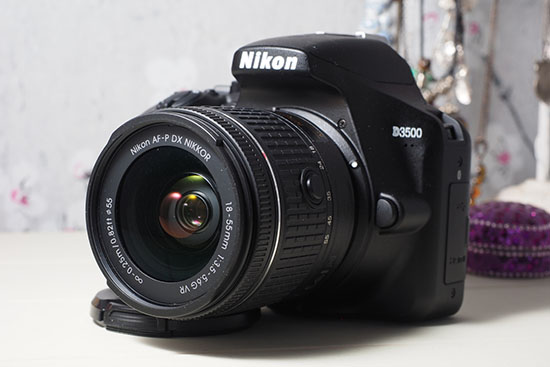 Nikon D3500
Nikon D3500 What is a mirrorless camera?
With mirrorless cameras, the light passes through the lens and goes straight to the image sensor, which then transmits the image straight to the screen, just like the operation of a phone camera. Some models also have a second screen in the EVF (electronic viewfinder), which helps you see better in bright light. One of the most popular Mirrorless cameras available today is the Sony a6100 (priced around $ 700 with kit).
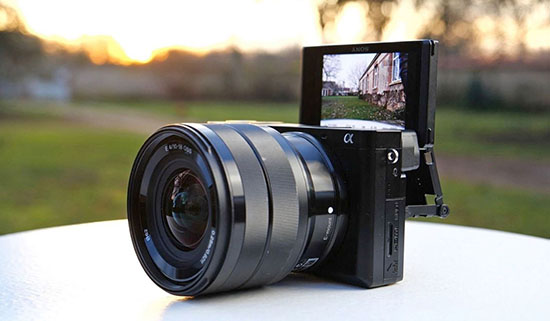 Sony A6100
Sony A6100 Size and weight
DSLR cameras are usually larger in size, as they need enough room to place mirrors and shutter. The mirrorless body is smaller, the internal structure is also simpler. This means it is easier to carry a mirrorless camera, especially when you have to carry more of its accessories in a camera backpack.
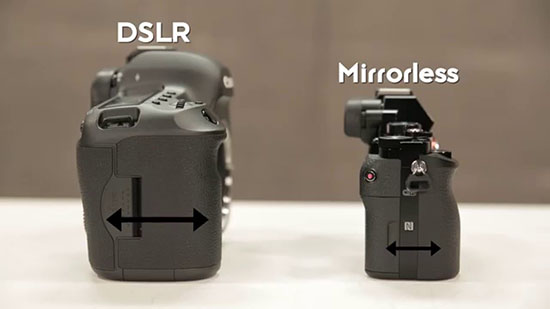 Differences in the size of the two models
Differences in the size of the two models Autofocus speed
Compared to focusing speed and shooting in low light conditions, DSLRs always prevailed, but began to lose strength when standing in front of a strong Mirrorless opponent like the Sony a7R III. The autofocus system of the mirrorless camera has been greatly upgraded, for example, the current Canon M6 has a focus speed that is hard to match. However, DSLRs are still in good shape with the ability to focus on fast-moving objects, such as shooting athletes or wildlife.
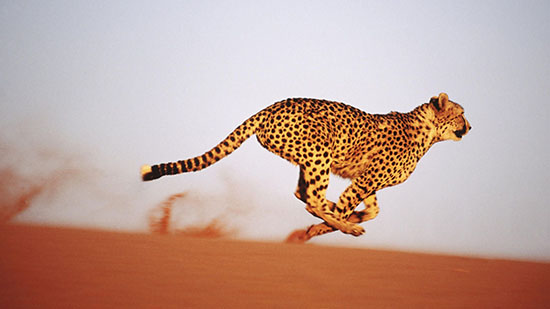 Only DSLRs can capture moving objects at high speeds like this
Only DSLRs can capture moving objects at high speeds like this Ability to preview images
DSLRs with physical viewfinders let you know exactly what images will be taken, just like you are looking through everything through a glass. As for Mirrorless, you will see the image you are about to capture through the screen. Some mirrorless cameras have an electronic viewfinder that mimics the physical viewfinder of DSLRs. When you shoot outside in the sun, the preview on the camera will be close to the real picture. But in other cases, such as low light or fast moving objects, the preview may be shaky or blurry. In contrast, DSLRs show better preview images in low light.
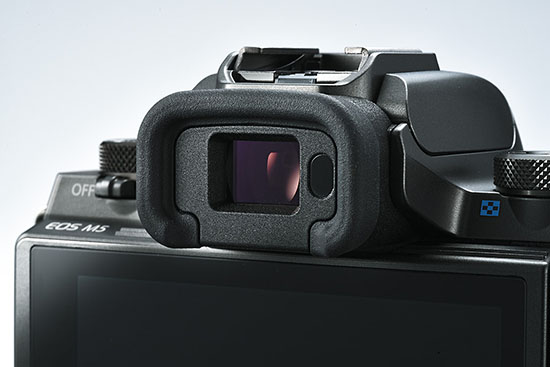 Electronic viewfinder on some mirrorless cameras
Electronic viewfinder on some mirrorless cameras Video quality
High-end Mirrorless cameras often have better video recording capabilities. Because DSLRs have mirrors, their ability to detect continuous light cycles during video recording is slow and inaccurate compared to Mirrorless's contrast detection method. This leads to blur in the middle of the video, because at that time the camera has to stop to find the focus point. However, some DSLRs have added contrast detection sensors, such as the Nikon D850. With fast autofocus capability, mirrorless cameras produce more quality video products than DSLRs.
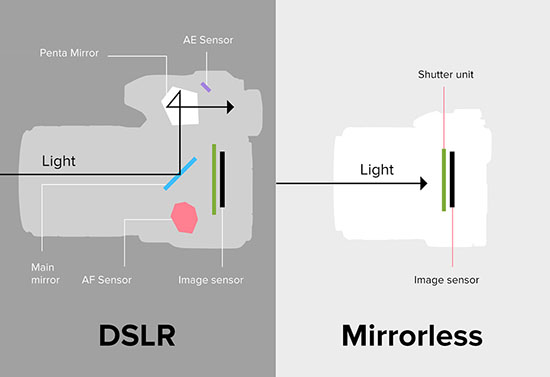 Light mechanism enters into the two machines
Light mechanism enters into the two machines Shutter speed
Both cameras are equipped with fast shutter speeds and the ability to take multiple photos at the same time. Mirrorless is actually a bit better at shooting speed in the two models (except for high-end DSLRs). Removing the mirror significantly increases image recognition speed. The simple mechanism of a mirrorless camera allows them to take more photos per second, with a fast shutter speed.
Battery life
Generally, DSLRs have longer usage times because they do not have to work as much with LCD monitors or EVF electronic viewfinders when shooting, which often consume a lot of power. Both DSLR and Mirrorless use replaceable batteries, so you can bring one more battery just in case.
Lenses and accessories
Choosing a DSLR leads you to a wide selection of lenses with all the functions. The lenses of a mirrorless model are limited in number despite increasing usage. Perhaps in the near future, the distance between the two lenses will not be too far.
summary
Mirrorless machine has the advantage of being light, easy to carry, video recording faster and more beautiful but with poor lens systems and accessories. DSLR advantages over lens selection, the ability to take photos in low light conditions are great but bulky and heavy. DSLR and Mirrorless cameras are both a testament to the pinnacle of digital camera technology these days and both offer top-notch performance, convenience and image quality.